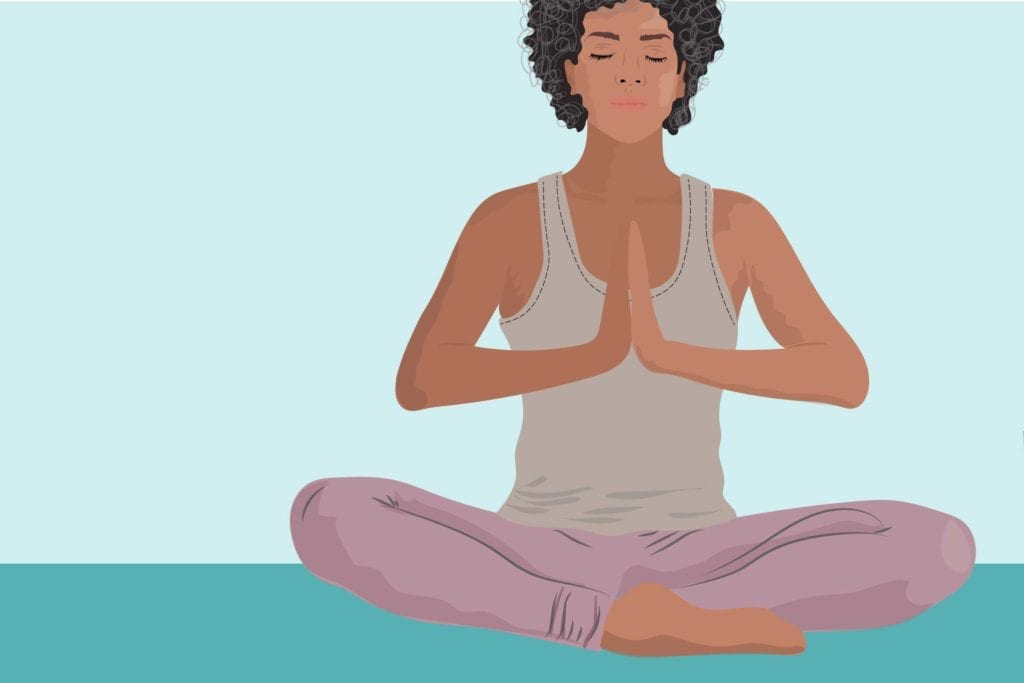

“I tell everyone that psoriatic arthritis is the wreck that happens when two awful diseases — psoriasis and inflammatory arthritis — crash into each other and make one giant dumpster fire,” says Helena B., 37, of Seattle, Washington. “Then everything else in my life, from kids to jobs to vacations, gets caught in blaze. PsA touches absolutely everything in my life.”
Diagnosed in her early twenties, Helena has been dealing with psoriatic arthritis for most of her adult life. And like many of the million other Americans who live with psoriatic arthritis, she says she’s heard everything when it comes to treatments, including medical advice from her doctors to suggestions from internet arthritis forums, counsel from friends, and even tips from strangers. But when it comes to advice, not all of it is created equally. We asked people with psoriatic arthritis to share the best tips they’ve ever gotten about managing this chronic disease.
1. Get regular massages
“When I was first diagnosed a friend gave me a gift card to a massage place, saying it helped her arthritis immensely. It turned out to be one of the best gifts I’ve ever gotten. My massage therapist understands psoriatic arthritis and uses essential oils like lavender to help soften the plaques. She also helps with pain during flare-ups by helping relax the muscles around my joints. Plus, it just feels so amazing.” — Jessie K., 33, Everett, Washington
2. Try CBD oil
“I don’t know what it is but when my scalp gets insanely itchy from my PsA rash, rubbing a little cannabidiol oil on it stops it almost instantly. It’s not the same as pot and can’t make you high if you’re worried about that. My doctor actually recommended it to me.” — Anna K., 50, Salt Lake City, Utah


3. Learn yogic breathing
“My psoriatic arthritis is triggered by stress and I was prone to stress even before I got diagnosed. My doctor told me that learning to manage my stress was my number-one priority in treatment. I tried many things but learning simple yoga breathing exercises has worked the best. I can do them any time, anywhere, and it helps me calm down fast.” — Anna K.
4. Wrap your hands
“One of the best tips I found online was to wrap my hands with ‘coban wrap,’ which is that sticky mesh bandage that the doctor uses after drawing blood. When my fingers are really swollen and painful, wrapping them helps reduce the pain. Be careful not to go too tight though; you don’t want to cut off circulation.” — Mark M., 31, Katy, Texas
5. Remember that you may need way more sleep than other people
“My favorite tip from my doctor was to forget the ‘rule’ that you need seven to eight hours of sleep every night. When you have an autoimmune illness you may need way more sleep than ‘normal.’ Like, during bad flare-ups I realistically need 12 to 14 hours of sleep per night. It’s a lot but when I do it, I find my psoriatic arthritis is so much easier to manage.” — Mark M.
6. Take an antacid with your ibuprofen
“My psoriatic arthritis isn’t super bad and my doctor is just treating it with over-the-counter NSAIDs. But those can cause a lot of stomach issues so he also told me to take an antacid, specifically a proton pump inhibitor, every day. I use Prilosec and it’s made a big difference with my nausea and stomach pain.” — Melinda M., 28, Mesa, Arizona
(Read more about picking the right NSAID for you and about the most common NSAID questions patients have.)
7. Don’t settle for the first drug you try
“My sister-in-law also has PsA and when I got diagnosed the first thing she told me was not to stick with the first medication I tried if it wasn’t helping. It seems like everyone starts on methotrexate but that didn’t do much for me — or her. Thanks to her advice I didn’t try to tough it out and asked my doctor to try something different. It’s taken a few tries but now I’m on a biologic that works great.” — Melinda M.
8. Plan a light schedule for injection days
“I take Humira by injection and it wipes me out. I used to try and just push through it but my best friend, who has rheumatoid arthritis, told me to just empty my schedule for the day I do the injection. It helps me recover faster and I no longer feel guilty about resting.” — Emily B., 26, Denver, Colorado
9. Find a good therapist
“I still have more days than not when I’m in constant pain. I underestimated how much that was affecting me mentally until my best friend — yep, same one! — pointed out that I sounded depressed. She recommended getting therapy and having someone to talk to about this disease has helped so much. I was trying not to overload family and friends with PsA talk so I kept it all in, not to mention I didn’t want them to worry. With the therapist I can tell her anything without worrying.” — Emily B.
10. Take a good probiotic
“I’ve learned that people with psoriatic arthritis tend to get sick more often, especially if you’re on biologics. This means you may get antibiotics more often, which can destroy the good bacteria in your gut. My doctor always gives me a prescription probiotic along with the antibiotic.” — Mahnu S., 37, Washington D.C.
11. Don’t wait to start medication
“When I was first diagnosed with psoriatic arthritis, I was nervous about taking medication to treat it and told my doctor I wanted to try diet and lifestyle changes first. He told me to go ahead and make those changes but to still start the medication because the longer I waited to go on it, the more damage my joints would get and the damage would be irreversible.” — Mahnu S.


12. Switch up your diet
“A friend introduced me to the AIP [autoimmune protocol diet] two years ago. Eating this way is very restrictive but it’s reduced my pain by half. I still have to take meds but my day to day life is almost back to normal. I recommend it to everyone.” — Justin S., 46, San Francisco, California
[Note: While there is some research that shows a connection between diet and inflammation, researchers are still trying to understand the link between certain foods and arthritis symptoms. It’s important to discuss diet changes with your doctor and make sure they’re part of an overall recommended treatment plan.]
13. Invest in compression gear
“A buddy I lift with introduced me to compression workout clothing — basically just super-tight spandex long-sleeve tops and pants. Exercise, especially weight lifting, really does help me feel better but I had been avoiding the gym because of the way the psoriasis looks and because of joint swelling. The compression gear helps with both. Sometimes I wear them underneath my regular clothing, it helps with the throbbing in my knees.” — Justin S.
14. Find a way to move
“When I first got diagnosed I really mourned the loss of my old lifestyle. I used to be very outgoing and active and the psoriatic arthritis pretty much killed all that for me. My doctor told me his number one advice was to find a way to keep my body moving, both for my mental and physical health. I had to give up rock-climbing and mountain biking — my poor hands — but I love weight lifting, hiking, and surfing.” — Justin S.
15. Try an SI belt
“Psoriatic arthritis has killed my sacroiliac joints, where my back meets my hips, and pregnancy was the final nail in that coffin. After my baby was born I thought I’d never walk again. My doctor recommended an ‘SI belt’ or ‘splint’ — it’s basically a giant, elastic thing that you velcro tightly around your hips. It holds my pelvis together. I still have to use a walker but I can walk again.” — Helena B., 37, Seattle, Washington
16. Don’t be afraid to change doctors
“I knew I wanted to try biologics but my doctor kept putting me off, wanting me to try everything else first. Finally, my husband told me to just change doctors, that I deserved someone who would listen to me. I took his advice and found a new rheumatologist and that has made all the difference. He takes the time to explain everything and I feel much more confident in my treatment now. Don’t stick with a bad doctor. You deserve better.” — Helena B.
17. Get a genetic test done
“Psoriatic arthritis can run in families and there is a genetic marker you can look for. When I was first having symptoms my cousin recommended I get genetic testing since hers showed an increased risk for psoriatic arthritis. I did and, sure enough, I had the marker. I told my doctor and I think it helped me get the right diagnosis faster. Plus, now I know for when I have kids.” — Melinda M.
Keep Reading
- VIDEO: Psoriatic Arthritis Is More than Skin Deep
- New Guidelines for Treating Psoriatic Arthritis You Need to Know About
- Psoriatic Arthritis Symptoms You Can’t Afford to Ignore





